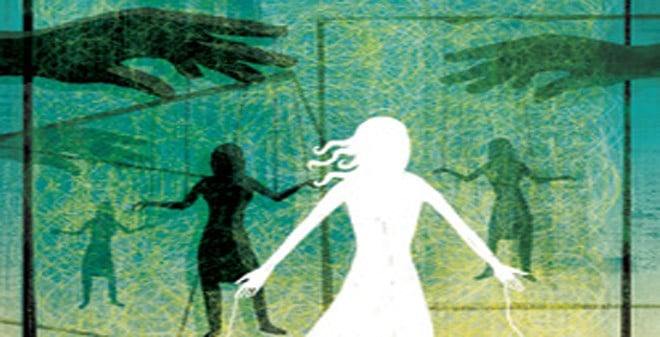

When sitting with young women in their mid-20s, one question always comes to mind. How far have women come in terms of exploring and entertaining different ideas about themselves? This is inevitably followed by others: are women still grappling with where they stand in society? Can women now, after decades of struggle, have a fulfilling family and career? And, is this what we even want?
And then there is the ‘M’ word that inevitably gets mentioned.
For some marriage is undue pressure; for others the natural course of events. The question still stands: how free are women to make these choices for themselves?
"I have always felt this pressure to get married and settle down, but, no, I wouldn’t say I’ve planned my life around marriage. Were I living in Pakistan, it probably would have happened by now. A lot of educated Pakistani women want to achieve so much but people think it is too late for them if they are not married by the time they are 20," says Allahditti Begum broaching the subject swiftly.
Being in another country for the greater part of the year seems to have saved her from the clutches of rishta aunties on the prowl.
"I’m destined to be the cat-lady," adds Afifah Shahnawaz, continuing, "I’m ambivalent to the notion of a cat-lady. I guess I’ve never thought about marriage as something I need to accomplish by a certain age or at all. I think finding the right person requires time, which is difficult to give with preoccupations like work and higher education".
For most women now, marriage isn’t as much of an issue as it was. Education has made them more aware and empowered to make that decision on their own, whether arranged or out of love. The days when they were shepherded off to some individual’s house is no longer the accepted norm.
But the trouble seems to arise after they tie the knot. Can women have it all? "Balancing family and career is really hard. One always suffers for the other. Both are full-time occupations, that is, if you want to do them properly. Men in our society are okay with it as long as it doesn’t affect them, as in, they won’t ever be happy with kids or house or his family being neglected or being given second preference to," says Ayesha Saleem, touching the core of the problem.
There seems to be a general agreement about this. "Pakistani men have a sense of domesticity. They expect women to take care of their home and children. Education has made things better though," says Allahditti Begum bringing in the view from abroad; "And a lot of Pakistani men living abroad have become more used to the notion of working woman since they have seen their mothers work hard."
Ayesha Saleem takes the discussion further by adding that women are mostly forced to be flexible -- "because they don’t have a choice. She is living in the guy’s house, getting money from him; she is completely dependent on him. This is probably why women nag so much; it’s the only thing that is in their control". Afifah agrees, "Women have to show flexibility because everything is set against their odds. Even sex and sexuality concerns the achievement of male satisfaction. It is considered a stigma for a woman to demand her own sexual satisfaction. All interactions with men are hugely asymmetrical in this patriarchal society."
Haleema Basit is quick to explore another aspect. "At times, women have themselves to blame. Pakistani women have accepted men as breadwinners and take it easy when it comes to supplementing income. They don’t strive to be independent even before marriage because they know they will have the man to fall back on."
Despite this, women now are more conscious of the choices they’re making. The narrative of feminism has made it easier for them to choose freely and resist pressure.
Women have been fighting for equality for ages now. The first wave of feminism, where women demanded more political rights including the right to vote came about in the 1920s. The second came much later beginning in the 1940s and 1950s as women, this time, fought to join the workforce.
The first wave of feminism coincided with the end of World War I, while the second was dictated by the end of World War II. When the men were away on battle, it was women who had stepped out of their traditional roles as creatures of home and into the public domain. They worked on railway tracks and weapon factories. They became secretaries and assumed roles previously considered "a man’s job".
However, as women have evolved so have men. Our social structures, however, prevent men from assuming responsibility. Most men in their mid- or early-20s have not considered marriage as serious an option as women have, showing a clear contrast in their social situations. "Not really considering, no… I don’t plan to marry for the next eight years," says Uzair Kamal, a freash graduate.
For most men in this age group marriage only becomes an option if they’re already in a committed relationship and at times not even then.
"It’s about finding the right person and assuming responsibility. If you’re ready for that then why not?" says Sohail Karim. "Obviously, men are not nagged about it in their 20s since the general notion is that we’re less mature."
Today, young people, especially women, are more aware of the choices they are making. They know it is not an easy path -- any which way they go. They are more prepared for the struggle. They know what lies ahead.
All names in this article have been changed to protect the privacy of individuals. The women were allowed to choose their own pseudonyms, the men weren’t given a chance.